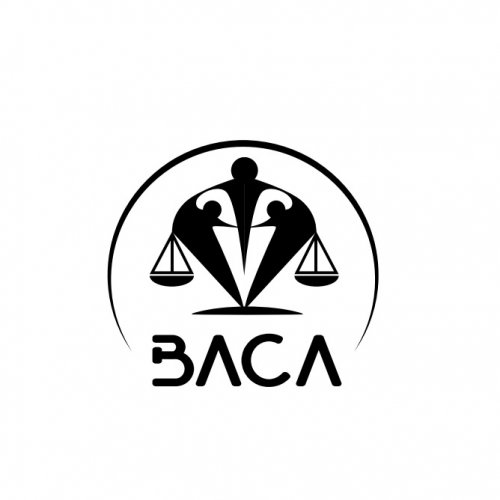Best Faith-Based Law Lawyers in South Sudan
Share your needs with us, get contacted by law firms.
Free. Takes 2 min.
Or refine your search by selecting a city:
List of the best lawyers in South Sudan
About Faith-Based Law in South Sudan
Faith-Based Law in South Sudan is an integral part of the nation’s legal system. It operates alongside statutory and customary law, reflecting the predominantly religious nature of the society, where Christianity and Islam are prevalent. Faith-Based Law covers matters related to personal status, marriage, divorce, inheritance, and other family-related issues. These laws are derived from religious texts and traditions, which can vary based on the community’s predominant faith.
Why You May Need a Lawyer
There are several situations where an individual may require legal assistance related to Faith-Based Law in South Sudan. Common instances include disputes over marriage and divorce, inheritance conflicts, or disagreements concerning the application of religious laws. Individuals may also seek advice when their rights under Faith-Based Law are in conflict with statutory laws and require mediation or representation in a legal setting.
Local Laws Overview
The legal system in South Sudan is a combination of statutory, customary, and Faith-Based Laws, with the latter two often intersecting. Key aspects of local Faith-Based Laws focus on personal status issues such as marriage, inheritance, and family obligations. For instance, marriage under Faith-Based Law might require certain religious rites or stipulations which differ from civil requirements. It is crucial to understand the interplay between these legal regimes to navigate and apply Faith-Based Law effectively.
Frequently Asked Questions
What is the role of Faith-Based Law in South Sudan’s legal system?
Faith-Based Law plays a significant role in regulating personal and family matters based on religious doctrines, particularly among communities where these laws are part of the daily fabric of life.
How does Faith-Based Law affect marriage practices?
Marriage under Faith-Based Law often includes religious ceremonies and adheres to specific religious stipulations that might not align with civil marriage laws, requiring compliance with both for legal recognition.
What should I consider when drafting a will under Faith-Based Law?
When drafting a will, it’s essential to consider religious doctrines regarding inheritance and property distribution, which may differ significantly from statutory laws.
Can Faith-Based Law be challenged in court?
While Faith-Based Law holds substantial authority in personal matters, conflicts with statutory law can be contested, requiring intricate legal expertise for resolution.
Are divorce proceedings affected by Faith-Based Law?
Yes, divorce proceedings can be heavily influenced by Faith-Based Law, requiring specific religious approvals and processes apart from civil procedures.
How do I know which laws apply to my situation?
Determining applicable laws can be complex due to the interplay of statutory, customary, and Faith-Based Laws. Consulting a legal professional can provide clarity and direction.
Is there a conflict between statutory law and Faith-Based Law?
Conflicts can arise, particularly where statutory rights might not be recognized under Faith-Based Law, necessitating mediation or legal intervention.
What are the rights of women under Faith-Based Law?
Women’s rights under Faith-Based Law may differ significantly from statutory rights, often based on religious interpretations, requiring careful legal consideration.
Where can I find legal help for Faith-Based Law issues?
Legal assistance can be found through professionals who specialize in understanding the nuances of Faith-Based Law and its intersection with other legal frameworks.
Do all religious communities have the same Faith-Based Laws?
No, Faith-Based Laws can vary significantly across different religious communities, necessitating tailored legal advice specific to each community’s faith-based stipulations.
Additional Resources
Individuals seeking further assistance on Faith-Based Law can benefit from connecting with governmental bodies such as the Ministry of Justice, religious organizations, legal aid clinics, and non-governmental organizations focused on legal rights and religious affairs. These organizations can provide guidance, resources, and contacts for legal representation in faith-based matters.
Next Steps
If you are seeking legal assistance for issues related to Faith-Based Law in South Sudan, the first step is to identify a qualified legal professional who has expertise in both statutory and faith-based areas of law. Understanding your specific community’s religious mandates and their interaction with local laws will be crucial. Schedule a consultation to discuss your situation and gather all relevant documents and information related to your case. Persistence and informed legal support can aid significantly in navigating the complexities of Faith-Based Law effectively.
Lawzana helps you find the best lawyers and law firms in South Sudan through a curated and pre-screened list of qualified legal professionals. Our platform offers rankings and detailed profiles of attorneys and law firms, allowing you to compare based on practice areas, including Faith-Based Law, experience, and client feedback.
Each profile includes a description of the firm's areas of practice, client reviews, team members and partners, year of establishment, spoken languages, office locations, contact information, social media presence, and any published articles or resources. Most firms on our platform speak English and are experienced in both local and international legal matters.
Get a quote from top-rated law firms in South Sudan — quickly, securely, and without unnecessary hassle.
Disclaimer:
The information provided on this page is for general informational purposes only and does not constitute legal advice. While we strive to ensure the accuracy and relevance of the content, legal information may change over time, and interpretations of the law can vary. You should always consult with a qualified legal professional for advice specific to your situation.
We disclaim all liability for actions taken or not taken based on the content of this page. If you believe any information is incorrect or outdated, please contact us, and we will review and update it where appropriate.
Browse faith-based law law firms by city in South Sudan
Refine your search by selecting a city.








